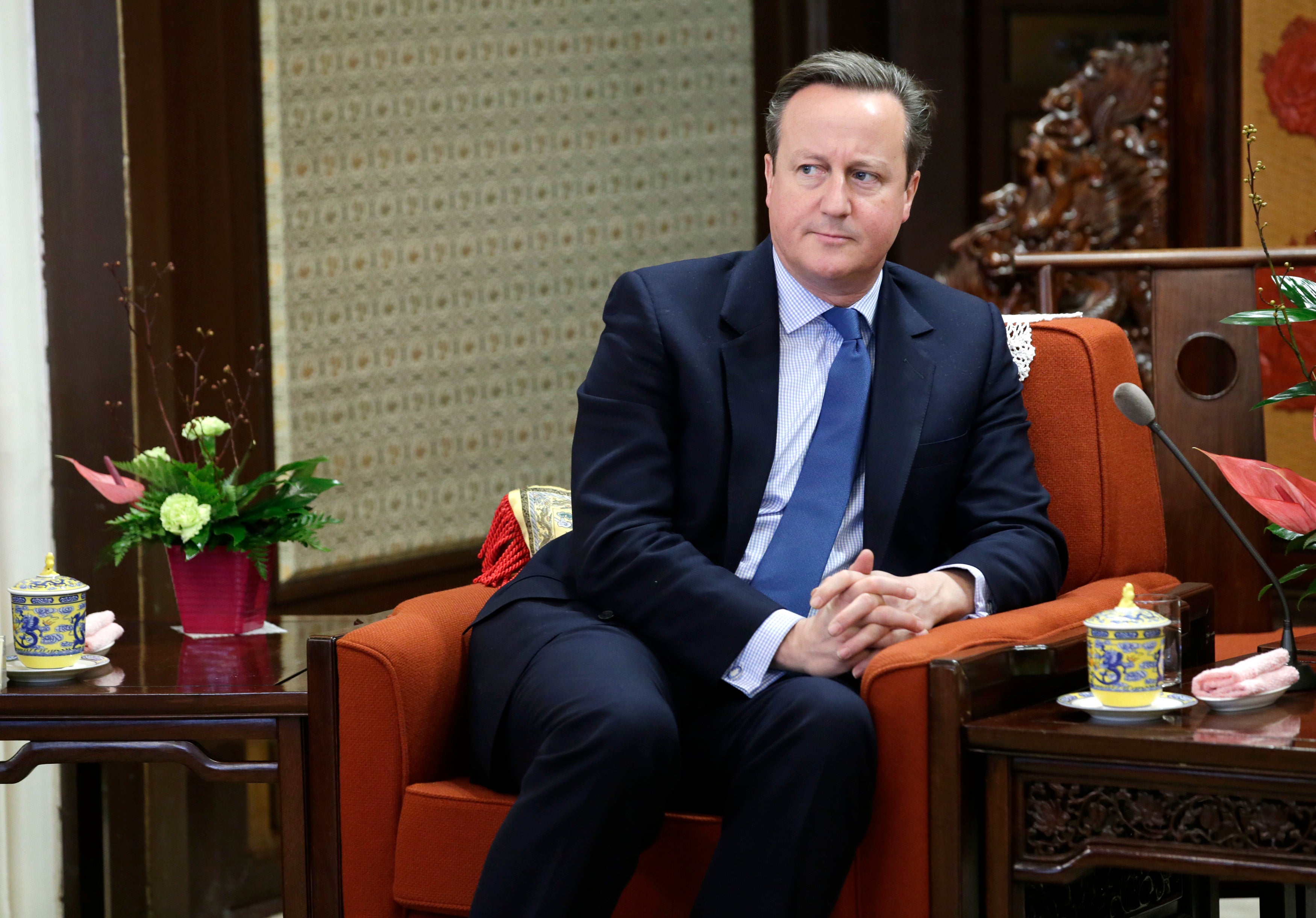Ex-UK PM Cameron grilled over links to bankrupt finance firm
Former British Prime Minister David Cameron says he never suspected that a financial services company he lobbied for would go under, threatening thousands of jobs at a steel firm it helped finance

Your support helps us to tell the story
From reproductive rights to climate change to Big Tech, The Independent is on the ground when the story is developing. Whether it's investigating the financials of Elon Musk's pro-Trump PAC or producing our latest documentary, 'The A Word', which shines a light on the American women fighting for reproductive rights, we know how important it is to parse out the facts from the messaging.
At such a critical moment in US history, we need reporters on the ground. Your donation allows us to keep sending journalists to speak to both sides of the story.
The Independent is trusted by Americans across the entire political spectrum. And unlike many other quality news outlets, we choose not to lock Americans out of our reporting and analysis with paywalls. We believe quality journalism should be available to everyone, paid for by those who can afford it.
Your support makes all the difference.Former British Prime Minister David Cameron said Thursday he never suspected that a financial services company he lobbied for would go under, threatening thousands of jobs at a steel firm it helped finance.
Cameron was summoned to answer lawmakers’ questions about his efforts to win government funds for Greensill Capital. His involvement with the firm has spurred inquiries into political lobbying in Britain.
The former Conservative Party leader is a key link in a chain of contacts between government ministers, civil servants and Greensill, which collapsed in March. The bankruptcy forced the owner of Liberty Steel, which employs about 5,000 people, to seek a British government bailout. Greensill was one of the company’s key financial backers.
Cameron told Parliament’s Treasury Committee he had “no sense at all” that the company was in danger.
“There was certainly no sense of jeopardy” at board meetings, he said.
Cameron became a part-time adviser to the firm two years after he left office in 2016. Greensill Capital was founded by Australian banker Lex Greensill — a former adviser to Cameron’s government.
During the coronavirus outbreak, Cameron sent text messages to U.K. Treasury chief Rishi Sunak and emailed the Bank of England in an effort to secure government-backed loans for Greensill under a program to help companies hurt by the pandemic. He also lobbied Health Secretary Matt Hancock on behalf of a Greensill product that would have allowed health care workers to receive advance payments on their salaries.
Cameron said he was motivated by a desire to help support British workers and businesses “in the economic turmoil caused by COVID” and not by the prospect of making millions from his Greensill shares.
“I was paid an annual amount, a generous annual amount, far more than I earned as prime minister, and I had shares,” said Cameron, who earned about 200,000 pounds ($280,000) a year when he was U.K. leader.
“I absolutely had a big economic investment in the future of Greensill, I wanted the business to succeed,” he said. But he insisted the amount he stood to make was “a private matter.”
Prime Minister Boris Johnson’s Conservative government has launched its own investigation into lobbying, led by a lawyer, but opponents doubt it will get to the truth.
Opposition parties are calling for tougher rules on contacts between business representatives and government officials, saying Britain’s laxly enforced lobbying regulations leave the door open to corruption.
Cameron said his appearance before the committee, by video link, was “a painful day.”
“I abided by the rules that were in place,” he said. “But rules alone are never enough.
“I completely accept that former prime ministers are in a different position to others because of the office that we held and the influence that continues to bring. We need to think differently and act differently.”